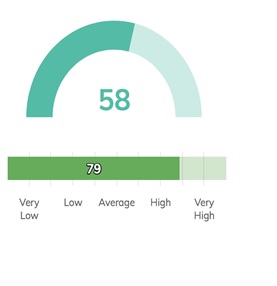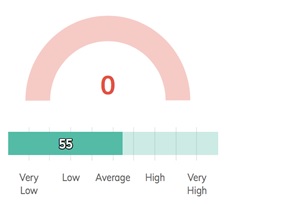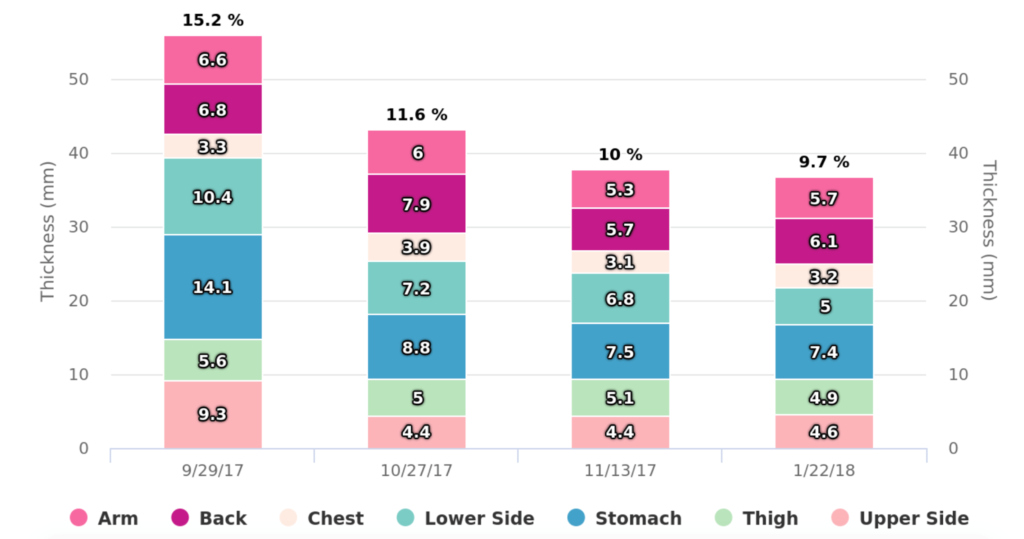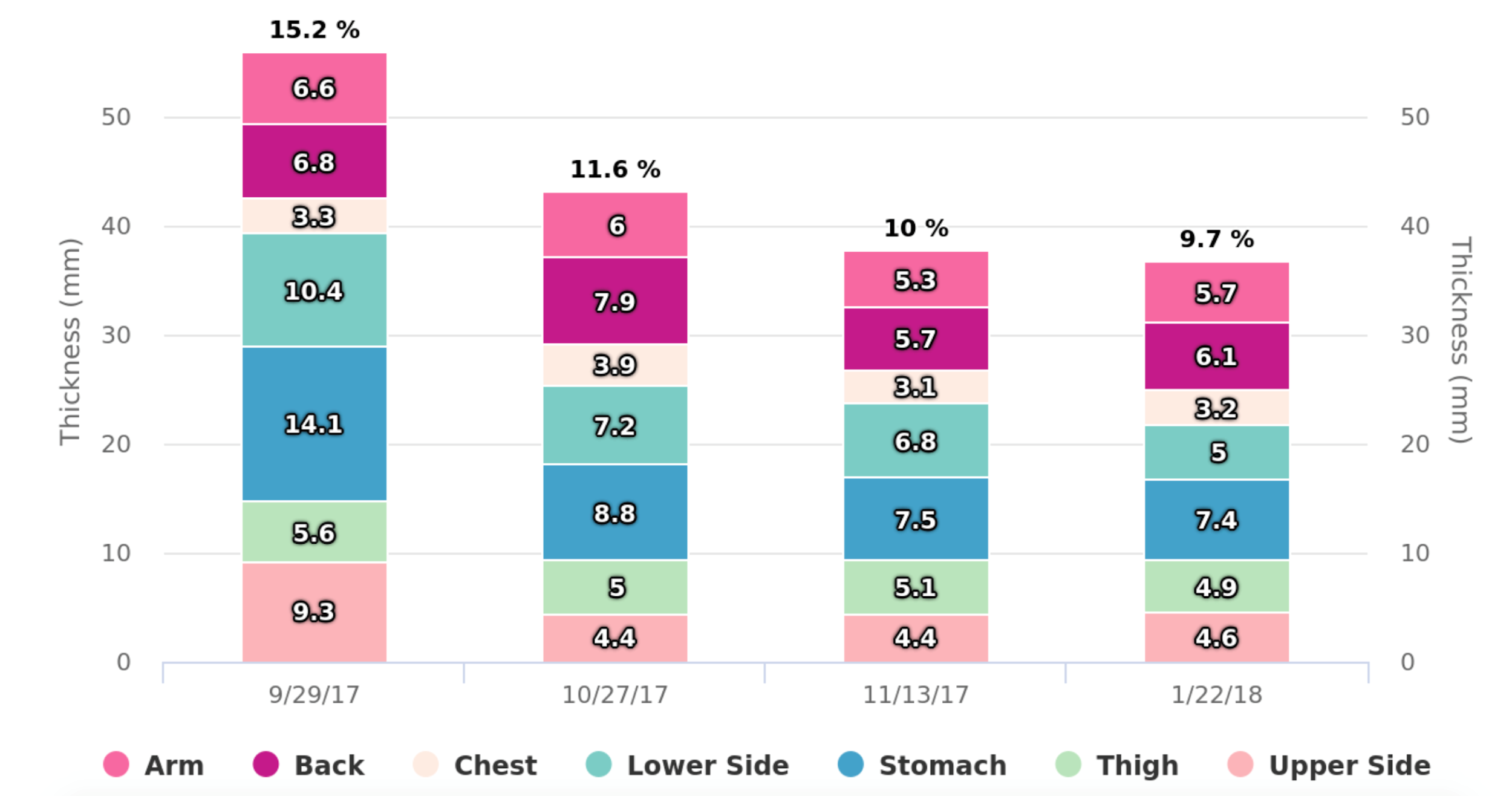Background – In 2017, a professional decathlete with injuries affecting his right achilles tendon and hamstring was working with a physical therapy fitness professional to recover. Despite this rehabilitation, he needed to maintain an appropriate training routine in order to stay on track for the 2020 Olympics. The professional regularly utilizes MuscleSound Assessments to monitor recovery and maintain muscle health. Additionally, the Body Composition Assessment is used to track body fat percentage (BF%) and adipose layer thickness changes throughout training.
MuscleSound Intervention – The professional performed the Check Game Readiness and Check Recovery Assessments to determine how much fuel was being used in a 30 minute training session. His right rectus femoris showed a large decrease in both fuel level and fuel rating, which the professional believes indicated the need for rehabilitation prior to exercise training. Additional, the Body Composition Assessment was used to obtain a baseline for his training. The professional developed a plan which included leg-focused exercises and changes to his diet. The professional continued to use the Check Game Readiness Assessment 3x a week in order to avoid overuse of the injured leg. Body Composition Assessments were conducted to track fitness progress.
Results – The Check Game Readiness Assessment allowed the professional to develop a personalized fitness and nutrition plan that enabled him to decrease his BF% by 5.5% in 4 months. The adipose layer thickness measurements showed the greatest reduction in body fat from his stomach, lower side, and upper side. He is now fully recovered and ready for competition. The professional was able to use MuscleSound technology to monitor his training and nutritional plan on a weekly basis, ensuring injury recovery without muscle overuse.
Pre Workout:
Post Workout:

Body Composition Changes:


